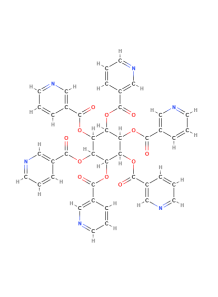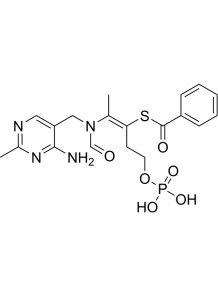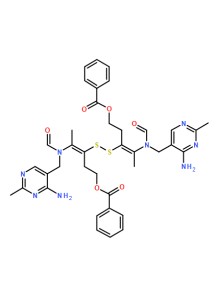a synthetic, fat-soluble derivative of thiamine (vitamin B1). Its structure allows for greater absorption and cellular uptake compared to water-soluble thiamine, leading to higher intracellular levels. This enhanced bioavailability has prompted research into its therapeutic potential, especially for conditions related to high blood sugar and oxidative stress.
a synthetic, lipid-soluble derivative of thiamine (vitamin B1). Unlike standard water-soluble forms such as thiamine hydrochloride or mononitrate, bisbentiamine offers improved bioavailability, especially at higher doses. Its lipid-soluble nature allows it to potentially cross the blood-brain barrier more effectively and achieve higher thiamine concentrations in blood and tissues, including the brain.
a synthetic derivative of thiamine (vitamin B1), composed of two modified thiamine molecules linked together. Its main distinguishing feature is its lipid solubility, which allows it to cross the blood-brain barrier more effectively than standard thiamine.
Cart
No products







